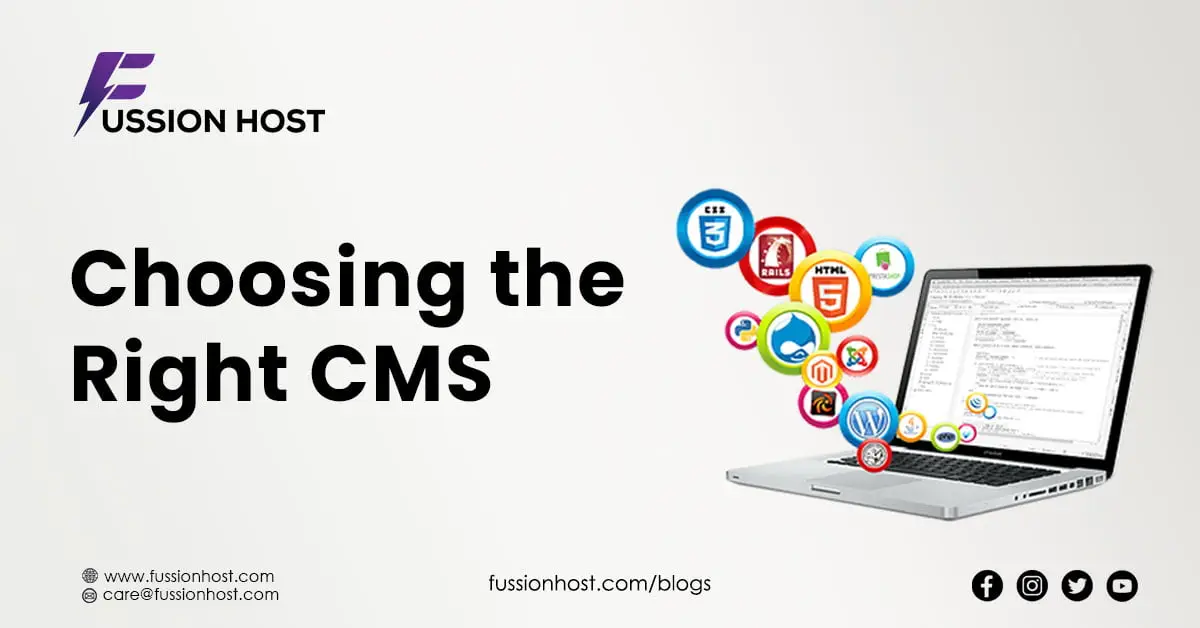
How to Choose the Right CMS: Your Ultimate Guide
Selecting the right Content Management System (CMS) is a pivotal decision for any website owner. The CMS you choose will be the foundation upon which you build your online presence, impacting everything from your website’s functionality and ease of use to its security and scalability. This comprehensive guide will help you navigate the CMS landscape, comparing popular options like WordPress, Joomla, Drupal, and more. While highlighting the best features for different types of websites.
Understanding Content Management Systems (CMS)
A Content Management System is software that allows you to create, manage, and modify digital content on your website without requiring extensive technical knowledge. CMS platforms typically offer a user-friendly interface for editing text, adding images, and organizing your content. They also provide features like templates and plugins to enhance your website’s design and functionality.
Key Factors in Choosing a CMS
- Ease of Use: If you’re not tech-savvy, choose a CMS with an intuitive interface and drag-and-drop functionality.
- Flexibility: Consider the types of content you’ll be publishing and whether the CMS supports your needs.
- Scalability: Choose a CMS that can grow with your website as your traffic and content increase.
- Security: Website security is crucial. Opt for a CMS with a good security update and patch track record.
- Support: Look for a CMS with a large community or dedicated support options for assistance.
- Cost: CMS options range from free to premium—factor in the price of Web hosting, plugins, and themes.
Popular Content Management System Options Compared
| CMS | Scalability | Security | Cost | Best For |
|---|---|---|---|---|
| WordPress | Excellent | Good | Free (Basic) | Blogs, small businesses, e-commerce |
| Joomla | Good | Good | Free | Community-driven sites, multilingual sites |
| Drupal | Excellent | Excellent | Free | Large, complex websites, enterprise solutions |
| Magento | Excellent | Good | Free (Open Source) / Paid | Large e-commerce websites |
| Shopify | Excellent | Excellent | Paid | Small to medium-sized e-commerce businesses |
| Wix | Good | Good | Paid | Beginners, small websites |
| Squarespace | Good | Good | Paid | Visually appealing websites, portfolios |
Choosing the Best CMS for Your Website
- Blogs and Small Business Websites: WordPress is an excellent choice for beginners and small businesses due to its user-friendliness and vast selection of themes and plugins.
- E-commerce Websites: Shopify and Magento are popular choices for e-commerce. Shopify is easier to use and suitable for smaller stores, while Magento offers more advanced features for large-scale online retailers.
- Community-Driven Websites: Joomla’s strong community features make it a good fit for forums and social networking sites.
- Large, Complex Websites: Drupal’s flexibility and scalability make it a powerful option for enterprise-level websites and complex projects.
- Visually Appealing Websites: Squarespace is renowned for its beautiful templates, making it ideal for photographers, designers, and artists.
- Beginner-Friendly: Wix offers a user-friendly drag-and-drop interface and is a good starting point for beginners who want to create a simple website quickly.
Conclusion
The right Content Management System can be a game-changer for your website. Carefully evaluate your needs, research your options, and choose a CMS that aligns with your goals and technical capabilities. By selecting the best Content Management System for your specific requirements, you’ll set your website up for success and ensure a smooth and rewarding online experience.



Leave a Reply